By
International Business Times
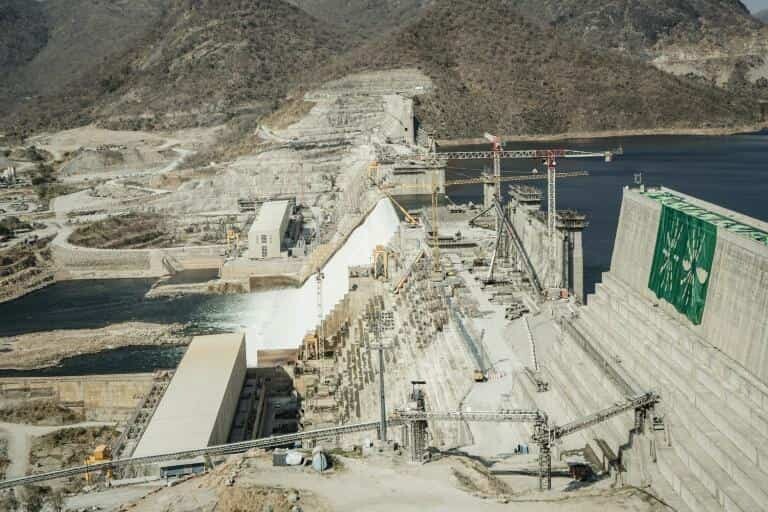 Ethiopia began generating electricity from its mega-dam on the Blue Nile on Sunday, a milestone in the controversial multi-billion dollar project.
Ethiopia began generating electricity from its mega-dam on the Blue Nile on Sunday, a milestone in the controversial multi-billion dollar project.
Prime Minister Abiy Ahmed, accompanied by high-ranking officials, toured the power station and pressed a series of buttons on an electronic screen, a move that officials said initiated production.
The Grand Ethiopian Renaissance Dam (GERD) is set to be the largest hydroelectric scheme in Africa but has been at the centre of a dispute with downstream nations Egypt and Sudan ever since work first began in 2011.
Abiy described Sunday’s development as “the birth of a new era”.
“This is a good news for our continent & the downstream countries with whom we aspire to work together,” he said on Twitter.
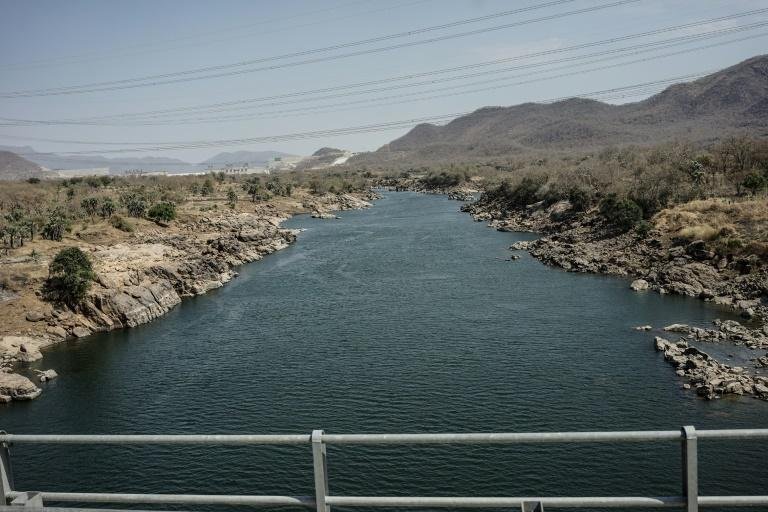
Addis Ababa deems the project essential for the electrification and development of Africa’s second most populous country, but Cairo and Khartoum fear it could threaten their access to vital Nile waters.
Abiy dismissed those concerns.
“As you can see this water will generate energy while flowing as it previously flowed to Sudan and Egypt, unlike the rumours that say the Ethiopian people and government are damming the water to starve Egypt and Sudan,” he said as water rushed through the concrete colossus behind him.

But Cairo denounced Sunday’s start-up, saying Addis Ababa was “persisting in its violations” of a 2015 declaration of principles on the project.
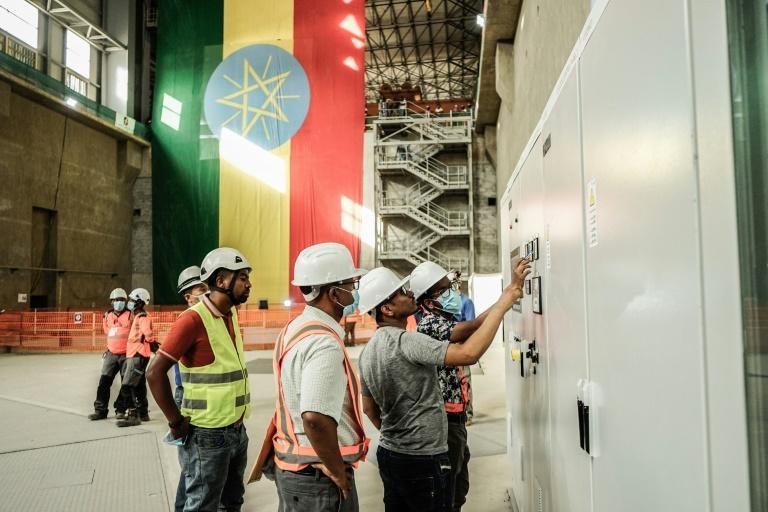
The $4.2-billion (3.7-billion-euro) dam is ultimately expected to produce more than 5,000 megawatts of electricity, more than doubling Ethiopia’s current output.
Only one of 13 turbines is currently operational, with a capacity of 375 megawatts.
A second will come online within a few months, project manager Kifle Horo told AFP, adding that the dam is currently expected to be fully completed in 2024.
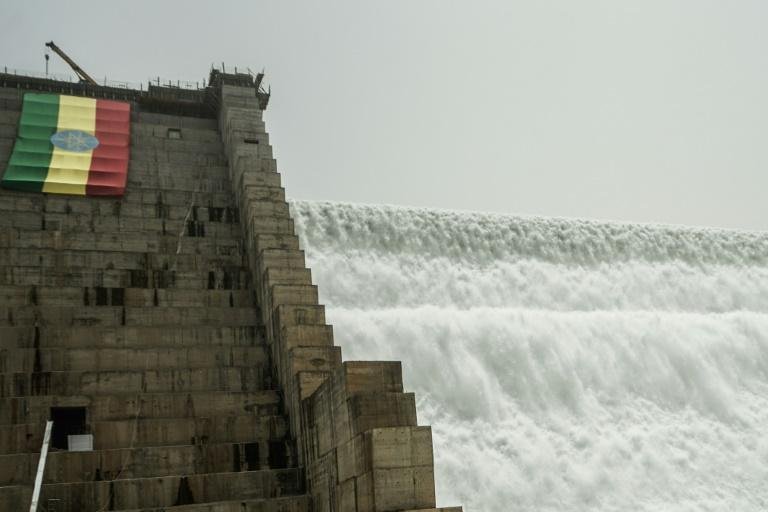
The 145-metre (475-foot) high structure straddles the Blue Nile in the Benishangul-Gumuz region of western Ethiopia, near the border with Sudan.
Egypt, which depends on the Nile for about 97 percent of its irrigation and drinking water, sees it as an existential threat.
Sudan hopes the project will regulate annual flooding, but fears its own dams could be harmed without agreement on the GERD’s operation.
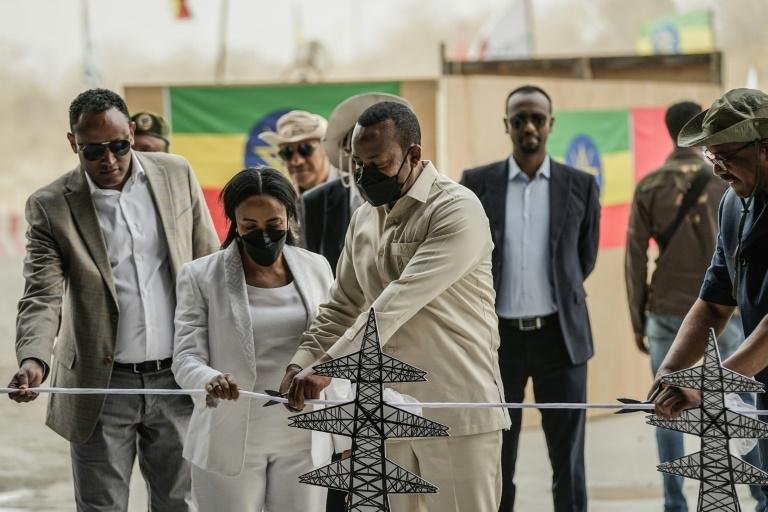
Both have long been pushing for a binding deal over the filling and operation of the massive dam, but African Union-sponsored talks have failed to achieve a breakthrough.
William Davison, senior analyst at the International Crisis Group, said the GERD is seen domestically “as a symbol of Ethiopia resisting external pressure”.
“The government has propagated the idea that foreign actors are trying to undermine Ethiopia’s sovereignty, so I think this will be cast as showing they are still making progress despite a hostile environment.”
Addisu Lashitew of the Brookings Institution in Washington described the GERD’s commissioning as a “rare positive development that can unite a deeply fractured country” after 15 months of brutal conflict with Tigrayan rebels.
“The newly-generated electricity from the GERD could help revive an economy that has been devastated by the combined forces of a deadly war, rising fuel prices and the Covid-19 pandemic,” he said.
The dam was initiated under former prime minister Meles Zenawi, the Tigrayan leader who ruled Ethiopia for more than two decades until his death in 2012.
Civil servants contributed one month’s salary towards the project in the year it launched, and the government has since issued dam bonds targeting Ethiopians at home and abroad.
Getachew Reda, spokesman for the Tigray People’s Liberation Front that has been at war with government forces since November 2020, said Abiy was taking credit for a project launched under a Tigrayan-led government.
“Today #AbiyAhmed is trying to cash in on a project that he once publicly downplayed as a meaningless publicity stunt,” he tweeted.
But officials on Sunday credited Abiy with reviving the dam after delays they claim were caused by mismanagement.
“Our country has lost so much because the dam was delayed, especially financially,” project manager Kifle said.
The process of filling the vast reservoir began in 2020, with Ethiopia announcing in July of that year it had hit its target of 4.9 billion cubic metres.
The reservoir’s total capacity is 74 billion cubic metres, and the target for 2021 was to add 13.5 billion.
Last July Ethiopia said it had hit that target, meaning there was enough water to begin producing energy, although some experts had cast doubt on the claims.
Kifle declined to reveal how much water was collected last year or what the target is for the coming rainy season.

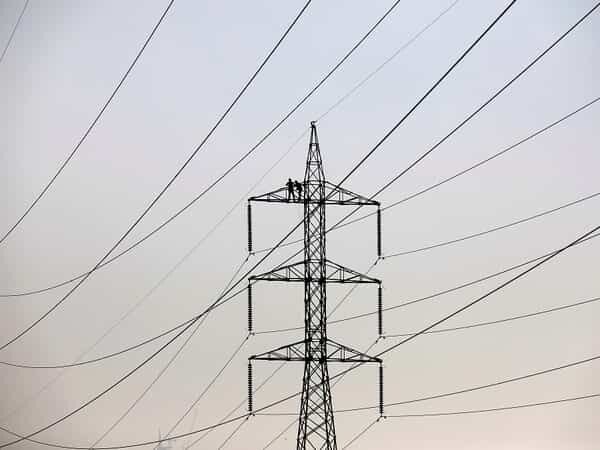
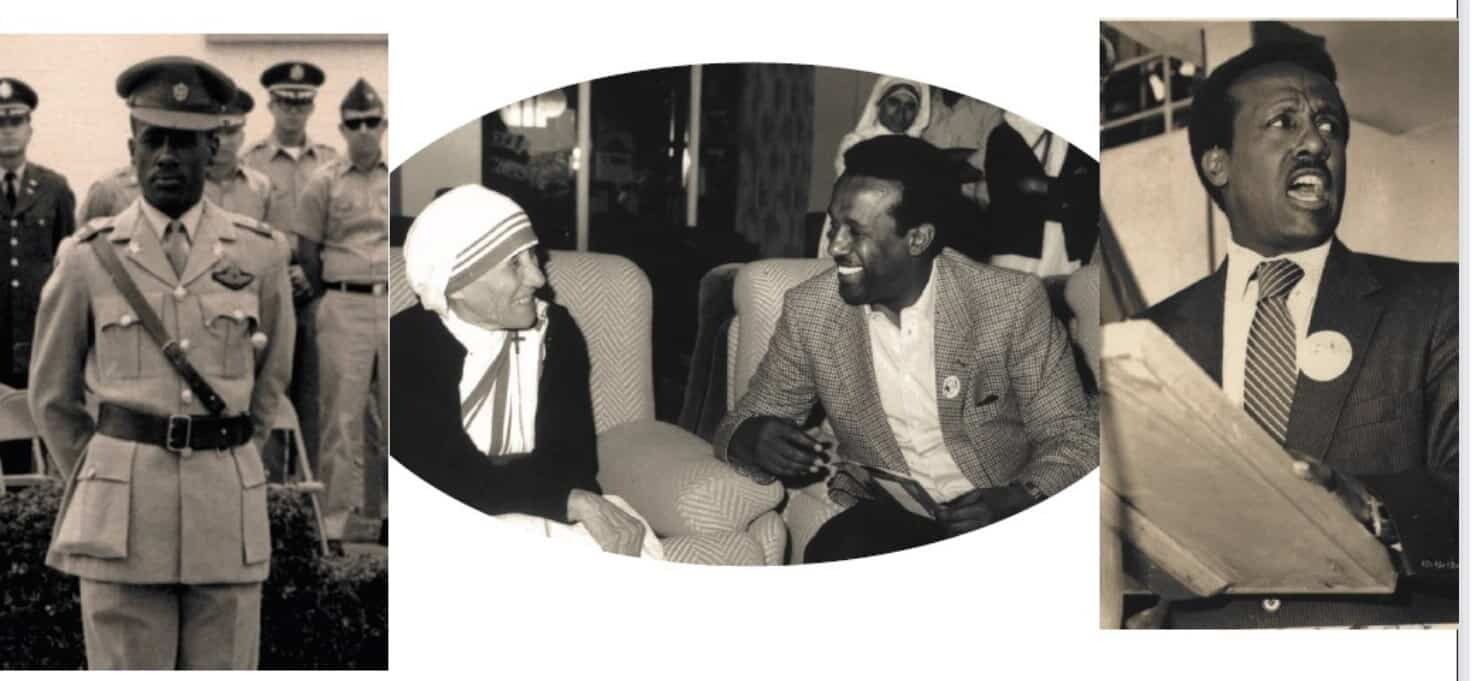






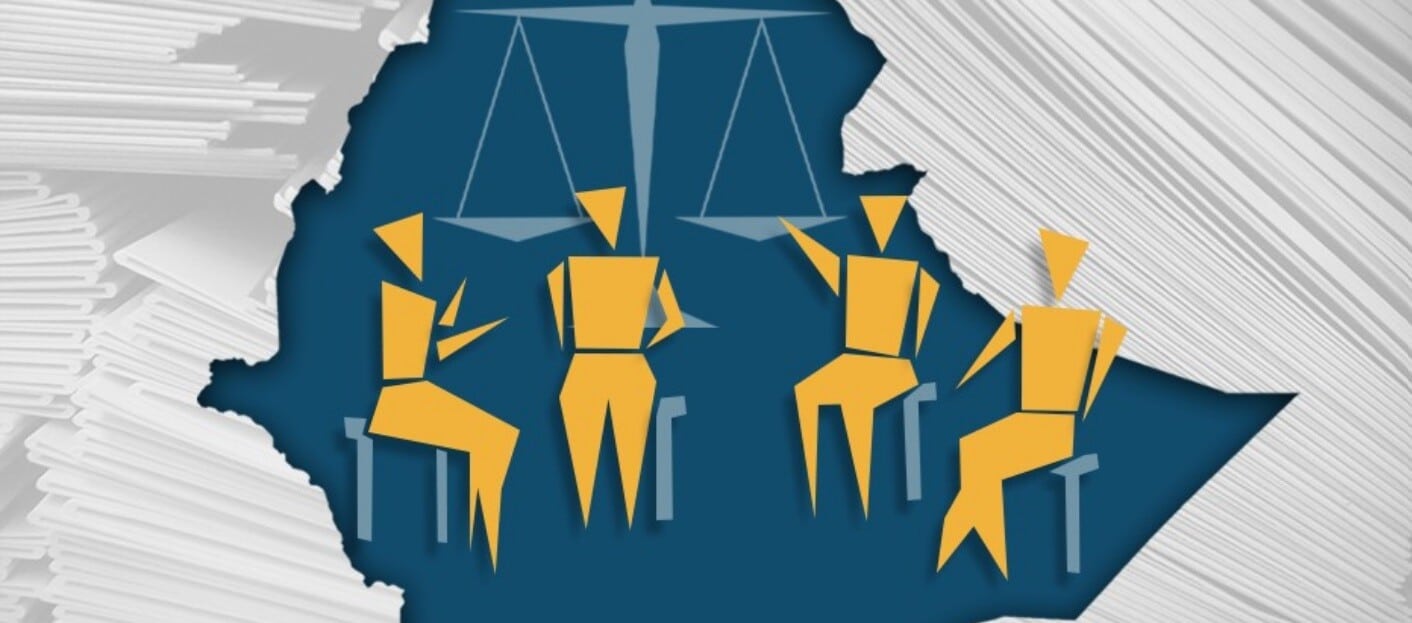


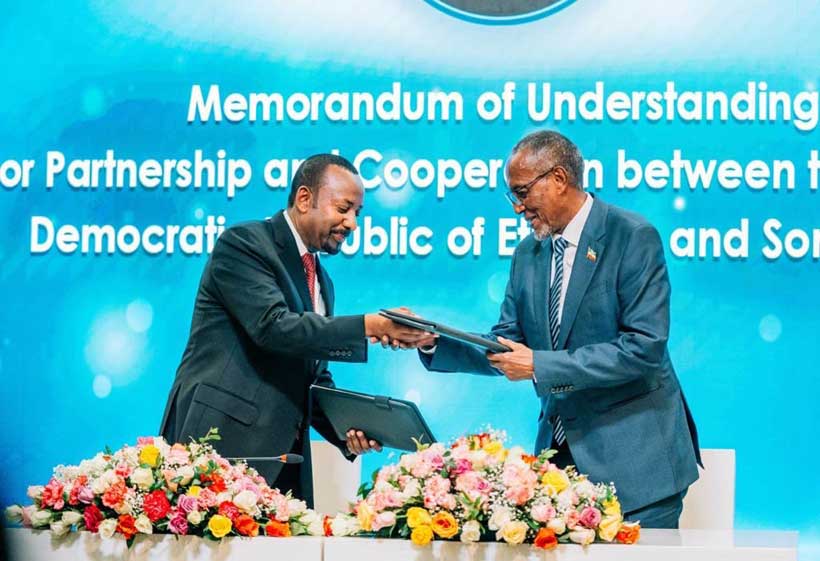
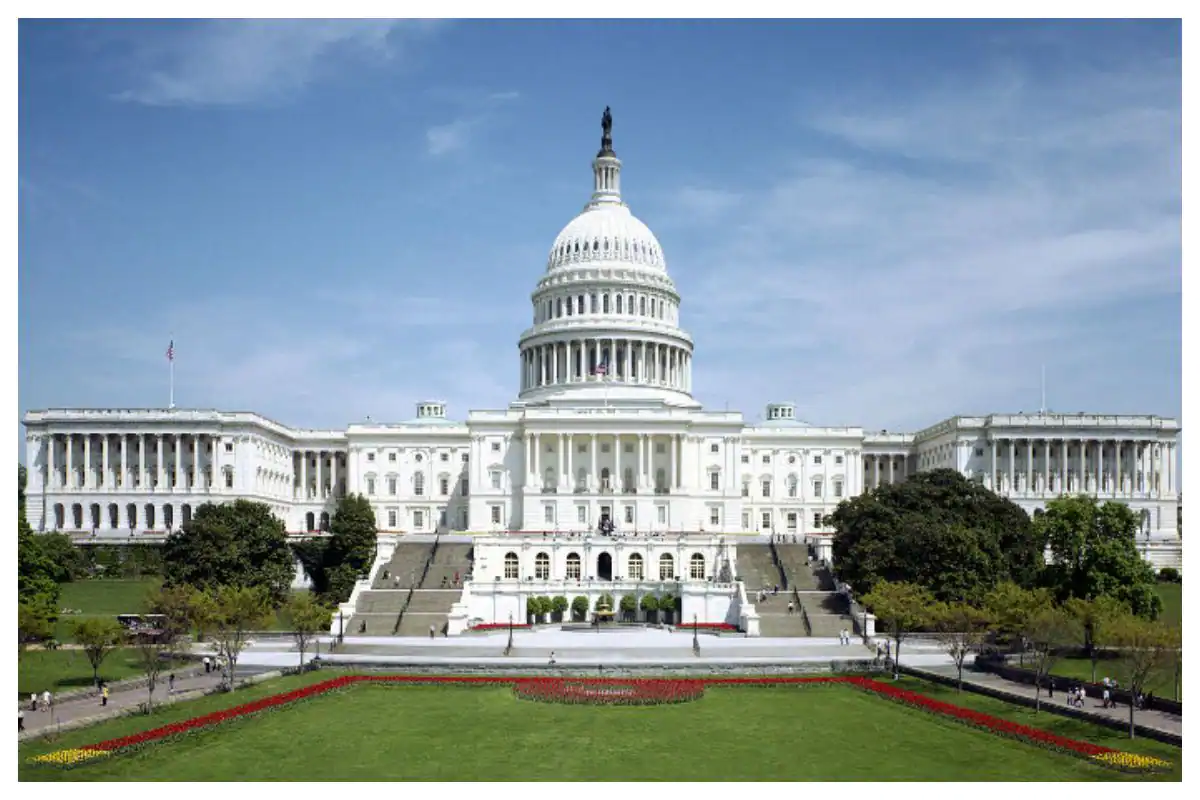
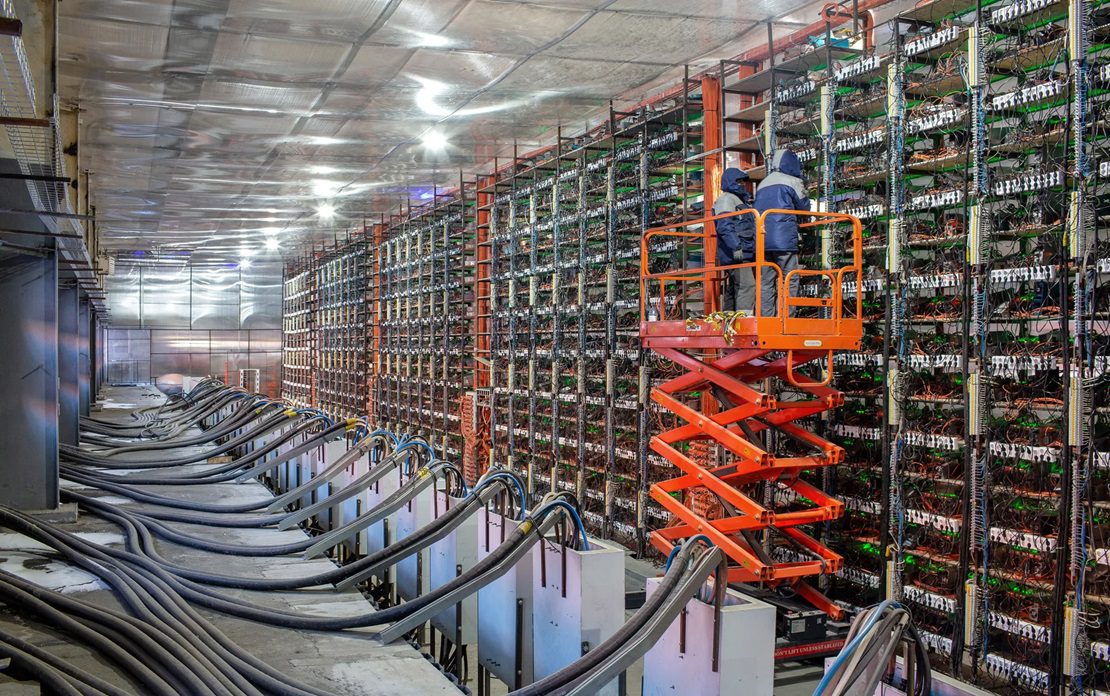
When I read this news on BBC I was overwhelmed with emotion. Suddenly I found my eyes filled with tears, tears of joy! This game changing dam was not a product backed by foreign handouts but it is built with unabated contributions by the children of that glorious country. They pitched in with their last penny and nickels from their dark and smoky huts determined to see light at the end of the tunnel. It is expected that those who get high from torching modern farms and factories may be hard at work with their sinister plan to do harm to the power lines that travels through rural areas.
Guess who is mumbling, moaning and crying? The superpower wannabe in Al-Qahirah is jumping around again to the tune of House of Pain and who do you think has joined him in his busting the move? His sound board in Khartoum that is. If you happened to read what these two are complaining about through their journals in Arabic, you will notice the orphan in Khartoum is saying the same thing word for word as his sponsor in Cairo. That is not only embarrassing but utter disgusting. It is so nauseating you want to throw up when you see every ounce of pride is gone. Well, well, well! As Obbo Dr. Sileshi told his engineering counterparts from Khartoum an Al-Qahirah, electricity is generated when water hits turbines. Did this decrease the amount of water flowing through the Sudan and reaching Egypt? Not even by an ounce. The first filling has been done a year or so ago both Sudan and Egypt has not noticed any change in the amount of water they have been getting for millennia. Otherwise, House of Pain! Hit it!!!
Jump around!
Jump around!
Jump around!
Jump up, jump up and get down!
Jump! Jump! Jump! Jump! (Everybody jump)
Jump! Jump! Jump! Jump!
Jump! Jump! Jump! Jump! (Everybody jump)
Jump! Jump! Jump! Jump!
Jump!